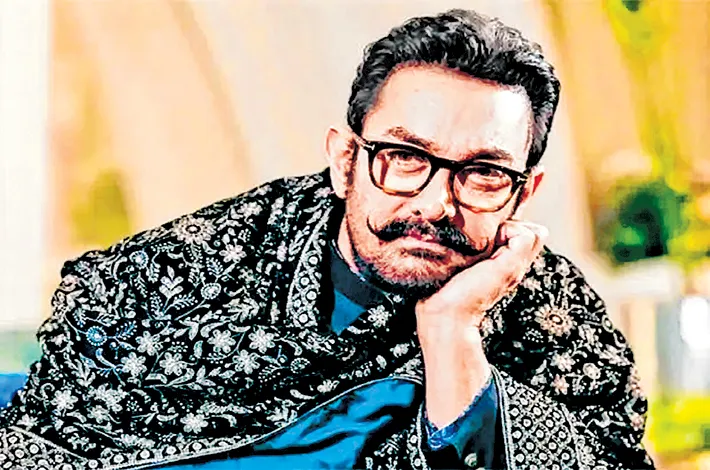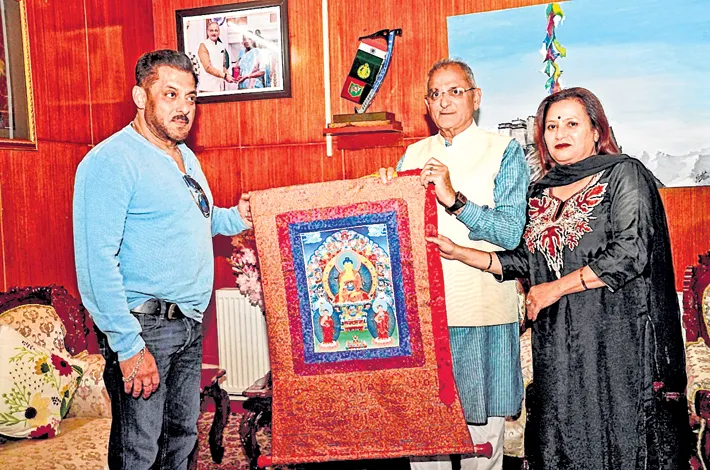The Silent Song of Suman
03-09-2025 12:00:00 AM

In the languid afternoons of 1870s Kolkata, where the air hung heavy with the scent of jasmine and the distant hum of a city awakening to modernity, Suman lived a life of quiet elegance. Her husband, Bhaskar, was a man of ambition, his days consumed by the printing press he owned, churning out newspapers that spoke of reform and revolution.
Their grand home, with its high ceilings and intricate chandeliers, was a testament to his success, yet it felt like a gilded cage to Suman. She was a woman of letters, her mind alive with poetry and music, but her world was confined to the four walls of their mansion, her only companions the soft rustle of pages and the occasional trill of a caged bird.
Bhaskar, though kind, was distant, his affection buried beneath stacks of editorials and the weight of his ideals. Suman longed for conversation, for someone to see the fire in her soul, not just the grace of her embroidered sarees. Her days passed in solitude, her fingers tracing the keys of a harmonium or penning verses in a diary no one read. That is, until Arjun arrived.
Arjun was Bhaskar’s younger cousin, a poet and dreamer with eyes that sparkled like the Hooghly River under moonlight. He came to stay with them, seeking inspiration in the city after years abroad. Unlike Bhaskar’s stern pragmatism, Arjun was a whirlwind of ideas, his laughter filling the house like a forgotten melody. He noticed Suman’s quiet intensity, the way her fingers lingered on a book’s spine, the way her eyes softened when she spoke of Tagore’s verses. He saw her, truly saw her, in a way Bhaskar never had.
Their connection began innocently enough. One rainy afternoon, as thunder rumbled outside, Arjun found Suman in the library, engrossed in a volume of Shelley. “You read him as if he’s speaking to you,” Arjun said, startling her. She smiled, hesitant, and they spoke for hours—about poetry, music, the ache of unexpressed dreams. It was the first of many such afternoons. They would sit by the window, the rain a soft curtain between them and the world, sharing stories and silences that felt more intimate than words.
Suman began to write again, her poetry infused with a new fervor, each line a secret shared with Arjun. He, in turn, composed verses for her, slipping them into books she loved, his words a delicate dance of admiration and restraint. “Your soul is a song, Suman,” he once whispered, his voice low, as they sat in the garden, the air thick with the scent of wet earth. Her heart raced, but she turned away, the weight of her marriage a shadow she couldn’t escape.
Bhaskar, absorbed in his work, noticed little of the quiet bond forming under his roof. But Suman’s sister-in-law, Mita, did. Mita, married to Bhaskar’s brother, was a woman of sharp wit and sharper eyes. She saw the glances Suman and Arjun exchanged, the way their laughter lingered too long. “Be careful, Suman,” Mita warned one evening, her tone laced with concern. “The heart is a reckless thing.” Suman brushed it off, insisting it was nothing, but Mita’s words planted a seed of guilt that grew with each stolen moment.
As weeks turned to months, Suman and Arjun’s bond deepened, teetering on the edge of something forbidden. They never spoke of love, never crossed the line, but their silences were heavy with unspoken longing. One evening, during a rare moment alone, Arjun took her hand, his touch gentle but electric. “If I could, I’d write a world for you,” he said, his voice breaking. Suman pulled away, her heart a storm of desire and duty. “We cannot,” she whispered, tears brimming. “This is not our story to write.”
The turning point came when Bhaskar, in a rare moment of attentiveness, suggested Suman contribute to his newspaper. Elated, she poured her heart into an essay, her words sharp and lyrical, a reflection of her inner world. Bhaskar was impressed, but when he casually mentioned Arjun’s encouragement as the spark, a shadow crossed his face. The realization of their closeness struck him, not with anger but with a quiet sadness. He loved Suman, in his own distant way, and the thought of losing her to his cousin’s charm was a wound he hadn’t anticipated.
Arjun, sensing the shift, decided to leave. “I cannot stay and be the ruin of you,” he told Suman one moonlit night, his voice thick with emotion. She wanted to beg him to stay, to confess the love she’d buried, but the weight of her vows held her back. Instead, she gave him a single page from her diary, a poem she’d written for him, her heart’s silent offering. “Keep this,” she said, her voice steady despite the ache. “Let it be enough.”
Arjun left the next morning, his departure a quiet wound in the house. Bhaskar, sensing Suman’s sorrow, tried to bridge the gap between them. He began spending evenings with her, listening to her play the harmonium, reading her poetry with a newfound respect. But the spark that had ignited with Arjun couldn’t be replicated. Suman smiled, she laughed, she lived, but a part of her remained with the man who’d seen her soul.
Years later, as Suman sat by the same window, now older, her hair streaked with silver, she found Arjun’s book of poems in a dusty corner of the library. Tucked inside was her poem, the one she’d given him, its edges worn from years of being held. A note in his handwriting read, “Your song lives in me, always.” She closed the book, her heart full and heavy, and looked out at the rain, wondering if he, too, was listening to its silent music somewhere far away.
In the end, Suman’s love for Arjun remained a melody unplayed, a story unwritten, but its echoes lingered in her poetry, in the quiet corners of her heart, a testament to a love that was as beautiful as it was impossible.








